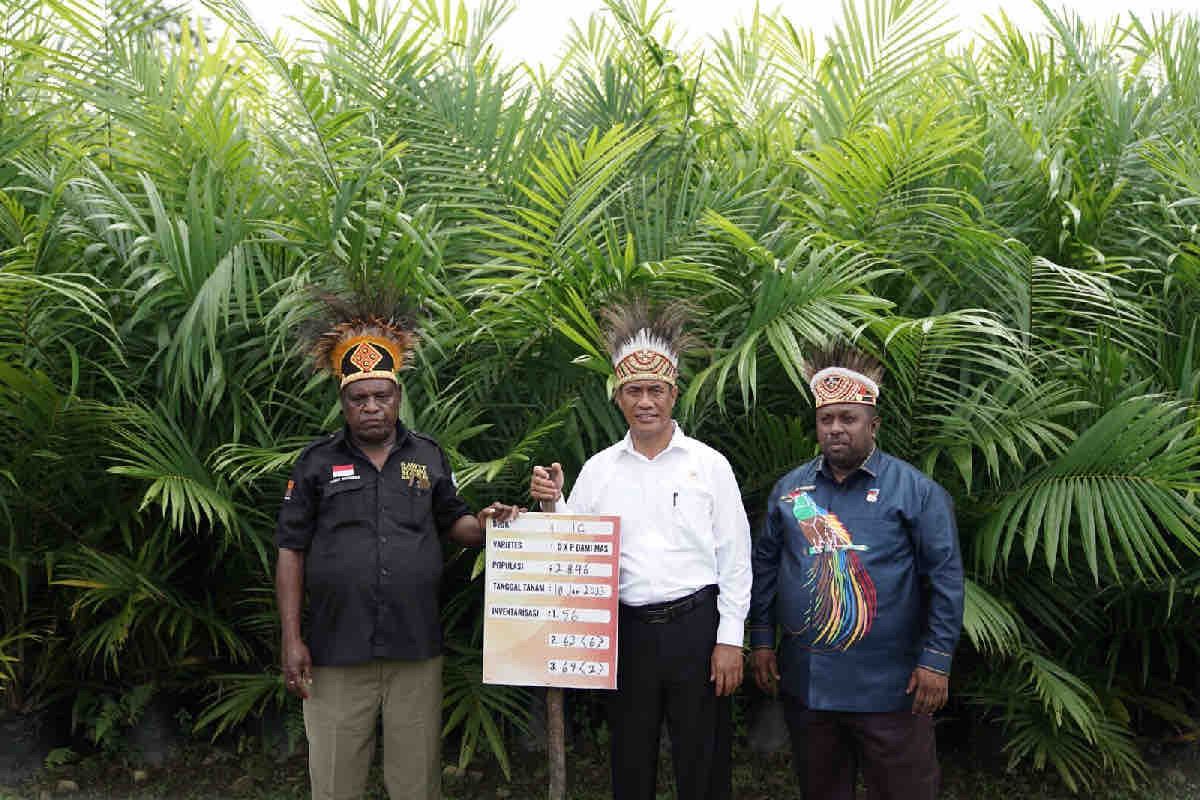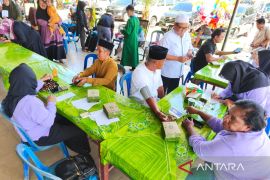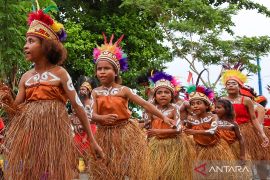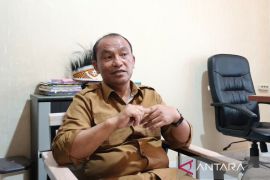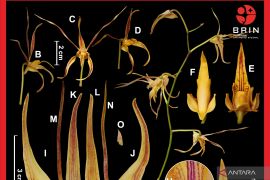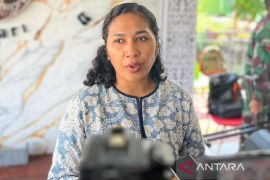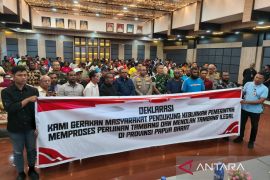He said that approximately 100–200 hectares of land are necessary for the downstream process.
"We can refine palm oil into cooking oil, thereby reducing our reliance on imports," he stated in a press release issued on Saturday.
With downstreaming, Indonesia will not depend on global palm oil prices. The country can independently manage its production and downstream activities, allowing processed products to find markets within the country.
“In the event that world palm oil prices decline, we can still market our products domestically,” he emphasized.
Amran also underscored the need for regional governments and farmers to maintain oil palm plantations to sustain production.
His ministry has provided replanting assistance for 2,300 hectares, with the possibility of further expansion.
"We already controlled the PSR (people's palm oil rejuvenation) as well," he disclosed.
Such efforts are expected to lead the Papua region toward food self-sufficiency, encompassing both oil palm and other food production.
Furthermore, West Papua aims to supply neighboring provinces such as Central Papua, Papua Highland, and Southwest Papua.
Amran said that he also considers Papua a strategic area, given its enormous land.
He said that he is targeting developing the region as a rice barn for neighboring provinces. This aligns with ongoing initiatives to optimize the 20,000-hectare agricultural land area in stages.
The ministry plans to leverage modern agricultural systems to enhance productivity, maintain quality, and reduce costs.
Related news: CPO, coal, and durian constitute largest exports to China: Kadin
Related news: Indonesia calls for fair UK due diligence rules on palm oil
Translator: Muhammad Harianto, Resinta Sulistiyandari
Editor: Anton Santoso
Copyright © ANTARA 2024
